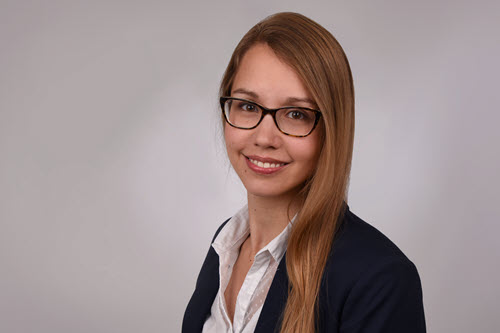
Published: 2021.05.17.
A data expert reveals how specialized know-how helps thousands of people lead a better life – for example, by designing a dashboard that already knows today which medicines will cure tomorrow.
My name is Stefanie Kaufmann and I’ve been working as a data scientist at Roche since 2017. Before that, I studied bioinformatics during my Bachelor’s and Master’s programs in Munich and then earned my PhD at TUM, again in the specialized field of bioinformatics. After receiving my doctorate, I worked as a management consultant for two years for Detecon in their energy division. Today I work in the Data Office of Roche Diagnostics Germany (RDG).
Our impact
Roche’s declared mission is to provide patients with an individualized therapy. To achieve this Roche needs more and more people working as data specialists. We support scientists in mastering the flow of information and data in the biomedical sector. My department, RDG Data Office, is, for example, responsible for gaining new insights from internal and external data, managing this data and creating a culture within the company that enables data-driven decisions. We want to understand and interpret data and, for example, find a biomarker that explains why some patients respond positively to a drug and others do not. "Personalized therapy" is the word of the day – this is where data comes into play as well as people who can deal with them.
On the one hand, these data are patient data, disease histories and the existing disease, e.g. biomarkers, laboratory values and histopathological images. On the other hand, the data from modern applications such as smartphone applications or wearables are playing an increasingly important role in the early detection of certain diseases. As well as data from preclinical development, research and basic research.The interplay of all this information creates the individualized medicine that Roche is working towards.
My group in the RDG Data Office is responsible for data access and data management. We’re working on projects that help Roche employees gain access to both internal and external data sources. Like, for example, gene expression databases that store research data, which in turn can be used for in-house research. In data management, our goal is to support Roche’s in-house departments so that they no longer just have to rely on Excel sheets. They can store their data in a form that is optimally tailored to their needs without having to deal with the technical details in the background.
To make all of this happen, our department consists of experts in data analysis, machine learning, data management and information scientists. Above all, it depends on domain knowledge on the one hand, and experience with data science on the other. Ideally, a certain amount of biomedical expertise is also available so that our employees can talk to customers at eye level.


"At Roche, everyone has the opportunity to make a long-term contribution to improving and making life longer for others thanks to their own work."
Stefanie Kaufmann
Sub-Chapter Lead Infrastructure & Technologies
slide 1 of 10 The Perspectives Programme is an excellent way of getting to know Roche and gain insights on how we are evolving personalised healthcare for the benefit of patients. It’s also a great way to focus on your strengths and the opportunities that lie ahead. Severin Schwan, CEO Roche


